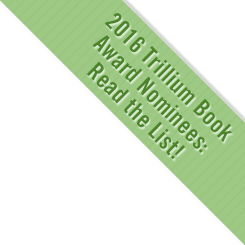Open Book is celebrating National Poetry Month with daily profiles of today's "unacknowledged legislators of the world." Find out what inspires, confounds and delights the poets behind this spring's new releases by following our series.
Is a lie a lie if the liar shows you how he lies? This is the question at the heart of Sam Cheuk's poetry collection, Love Figures (Insomniac Press), which teases possible answers from diverse and surprising sources: self-censorship and identity performance; lyric poetry, postmodernism and phenomenology.
"Sam Cheuk's first collection, Love Figures, reveals the poet as a kind of detective in inner sanctum," says Yusef Komunyakaa, author of Warhorses and Talking Dirty to the Gods. "Cheuk's wit shows in the movement of each trope and through moments of adroitness where both pain and joy meet in the same line. Get ready for Love Figures, as the poet aims continuously and hits the mark slantwise."
Open Book:
Can you describe an experience that you believe contributed to your becoming a poet?
Sam Cheuk:
Well, English wasn’t my first language and right when I emigrated to Canada at the tail-end of Grade 4, the teacher wanted to integrate me as well as he could and sort of forced me to participate Simon Says. I knew English about as well I know French now and the only verbs I could muster at that moment was “stand” and “sit.” I felt pretty embarrassed. It is probably that experience that seeded in me the “fuck you, I’ll know English better than all y’all” mentality that ran through till my early 20s — and what better way to exercise that than to take poetry seriously?
OB:
What is the first poem you remember being affected by?
SC:
Gonna go with an obvious one here and say Thomas’s “Do Not Go Gentle into that Good Night.”
OB:
What one poem — from any time period — do you wish you had been the one to write?
SC:
Milton’s “Methought I Saw my Late Espoused Saint,” or this one tiny poem fragment wedged in Akhmatova’s Poem Without a Hero where the speaker remembers this pretty clichéd romantic scene, a couple walking through this enchanted icy park at night, until the poem ends abruptly with these two lines (I don’t know if I remember them right):
Tell me the one word which kills death
and is my life’s one clue.
OB:
What has been your most unlikely source of inspiration?
SC:
Casual sex with literature groupies? Kidding. Probably semiotics, although in my mind it isn’t so “unlikely.” Then again I always find it odd that very few of my poet friends have any interest in it. What things mean and how they mean, how can they not?
OB:
What do you do with a poem that just isn't working?
SC:
Chuck it and start afresh with whatever's worth saving saved in my head.
OB:
What was the last book of poetry you read that really knocked your socks off?
SC:
I’d say Durs Grünbein’s Ashes for Breakfast (Farrar, Straus and Giroux, 2006).
OB:
What is the best thing about being a poet…and what is the worst?
SC:
Best: Having access to the religious experience without necessarily being religious, and then having the tools to articulate it.
Worst: The petty bickering among poets. Henry Kissinger said “University politics are vicious precisely because the stakes are so small.” Well, same logic applies here.
Sam Cheuk holds an MFA from New York University. He divides his time between Toronto, Vancouver and Hong Kong.
For more information about Love Figures please visit the Insomniac Press website.
Buy this book at your local independent bookstore or online at Chapters/Indigo or Amazon.


Post new comment